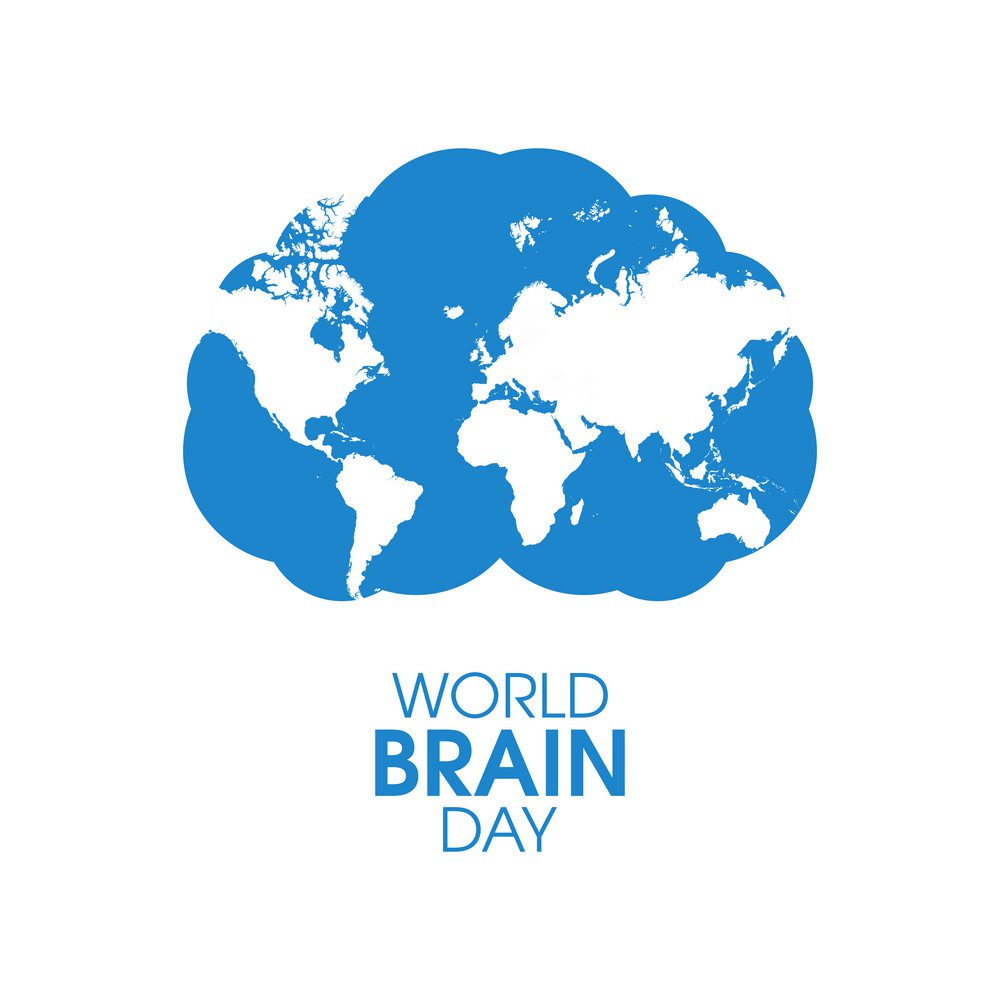Search by Color or Cause


The World Federation of Neurology was established on July 22, 1957. For this reason, World Brain Day takes place on July 22 each year. Further, The Public Awareness and Advocacy Committee suggested that July 22, 2014 be celebrated as World Brain Day. This proposal was announced at WCN, Council of Delegates meeting on September 22, 2013. The proposal was received with a warm welcome by delegates. As a result, The Board of Trustees meeting in February 2014 endorsed this proposal as an annual activity.
There are many days related to neurological diseases. These are celebrated by professional organizations in collaboration with World Health Organization, national organizations and local health ministries. Examples include World Stroke Day, Epilepsy Day, and Rabies Day. These days have proven to be extremely helpful in promoting public awareness. In addition, they also generate advocacy throughout the globe including developing Asian, African and Latin American countries.
Gray represents the brain. For this reason, wear a gray awareness ribbon, gray enamel pin or silicone wristband to recognize World Brain Day.
The main objective of this day is to increase public awareness and promote advocacy related to brain health. The theme for this year’s campaign is “our brain, our future.” World Brain Day (WBD) was established by the World Federation of Neurology in 2014. It’s goal is to increase public awareness and promote advocacy around an important topic in neurologic health each year.
On World Brain Day, people across the world are encouraged to come together and promote awareness of important topics in brain health. By shining a light on brain health, World Brain Day encourages people to take action on an individual, community, and global level. This push for more education and awareness also emphasizes the importance of funding research to uncover connections between brain diseases and deepen our understanding of diagnosis and treatment.
This year’s theme of brain health and disability brings attention to the many people with neurologic disabilities around the world. It also aims to inspire a global initiative to close the gaps in disability education and awareness.
People with disabilities due to brain diseases and disorders, for example, often face barriers to accessing the health care they need. To break down these barriers, World Brain Day is focused on five key aims: prevention, awareness, access, education, and advocacy. Through action in these five areas, we take steps to reduce disability associated with brain diseases, achieve universal access to care and treatment, and increase equity.
According to the World Health Organization, neurologic conditions are the leading cause of disability adjusted life years (DALYs). Individuals with disabilities face many different challenges. These include stigma, discrimination, and social exclusion. These challenges can prevent people from receiving the care they need. This year’s WBD initiative shows that with a coordinated global effort, we can make the world more accessible and equitable for all. This is particularly true when it comes to brain health. No one is left behind.
This is our chance to show up for people with disabilities that stem from neurologic diseases and create a global effort to break down barriers that prevent them from achieving the highest possible standard of health that everyone deserves. So many of these individuals face stigma, discrimination, and lack of access to professional care and rehabilitation that can change their lives.
One way we can work to reduce the global burden and disability of brain disease is to increase support and funding for research. This will close the current gap in care. With a better universal understanding of brain health, we can make a difference for individuals with disabilities. We can also develop better treatments for everyone impacted by brain disease.
There are a range of different ways that brain diseases and disorders create undue burden for individuals and their families. One area where we see a growing global burden is the impact of neurodegenerative diseases on a growing elderly population in the coming decades. Diseases, for example, like Alzheimer’s and Parkinson’s, often require increasing levels of care as individuals age. This creates additional, unforeseen financial and emotional stress for their loved ones.
For many people, brain disease leads to a degree of disability that creates a need for significant care. For example, people living with movement disorders often require caregivers, adaptive home equipment, transportation, and other resources. Additionally, many brain diseases can cause disabilities that limit a person’s ability to work. This, in turn affects their financial stability and mental health.
We are also learning more and more about the potential for long-term disability caused by traumatic brain injuries (TBI). Researchers are working to better understand how repeated concussions and other head injuries can lead to chronic traumatic encephalopathy (CTE), dementia, and other disabilities. Single severe head injuries can also result in lifelong disability. Building awareness, sharing educational resources, and funding research will help ease the financial and emotional burden of brain disease for individuals and their families.
The American Brain Foundation suggests the only way to ease the burden caused by brain disease is by investing in research across the whole brain. Only through continued research will we find the treatments and cures we need to reduce disability and support people living with brain disease. Researchers have made significant advancements in treatment in recent years. This includes things such as wearable technology for reducing disability caused by brain disease.